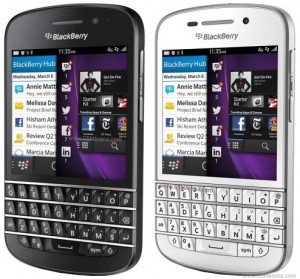
According to Blackberry’s CEO, the company may stop selling handsets if it continues losing money. The handset and services company is however trying to expand its corporate reach with partnerships, acquisitions and investments.
“If I cannot make money on handsets, I will not be in the handset business,” said John Chen, noting that he had little time to decide.
He however recanted in a blogspot after the interview with Reuters, insisting that he has no plans of selling off anytime soon.
“I want to assure [customers] that I have no intention of selling off or abandoning this business any time soon. I know you still love your BlackBerry devices… we will do everything in our power to continue to rebuild this business,” he added. “Rest assured, we continue to fight.”
Chen said he believes the company can still make profit, despite the domination of Samsung and Apple, if it can ship about 10 million phones a year, but with its biggest competitors recording greater sales – Apple sold 51 million iPhones in the last quarter of 2013, Samsung sold 64 million units- during the same period, Blackberry may soon realise 10 million mobile phones a year is too low to secure the company’s future.
As it moves to stay afloat, BlackBerry seems to be shifting focus to the enterprise market from the consumer market, as it plans for mobile devices for corporate bodies. Also BlackBerry is confident its latest smartphone operating system, BlackBerry 10, would improve its fortune, but sales of devices running on the software has so far been less than impressive.
Africa is a key market for BlackBerry, as many users of the Candian company’s range of handsets see it as a relatively better alternative to Android and iPhones, especially in Nigeria where mobile internet is cheaper on Blackberry.
“BB [Blackberry] is still the most effective means of communication…and it is very cheap,” says Jermaine Okpere, a Doctor in Ibadan, South western Nigeria.
However, with attractive features introduced by Apple and Samsung, as they continue their rivalry at the top of the pyramid of Africa’s smartphone market, more Africans are starting to embrace the iPhone and Samsung’s range of Galaxy phones.
If Blackberry loses more of its share in the African market, Chen’s fears may happen after all and the handset maker may be forced to stop production as its market share globally continues to dwindle
No comments:
Post a Comment